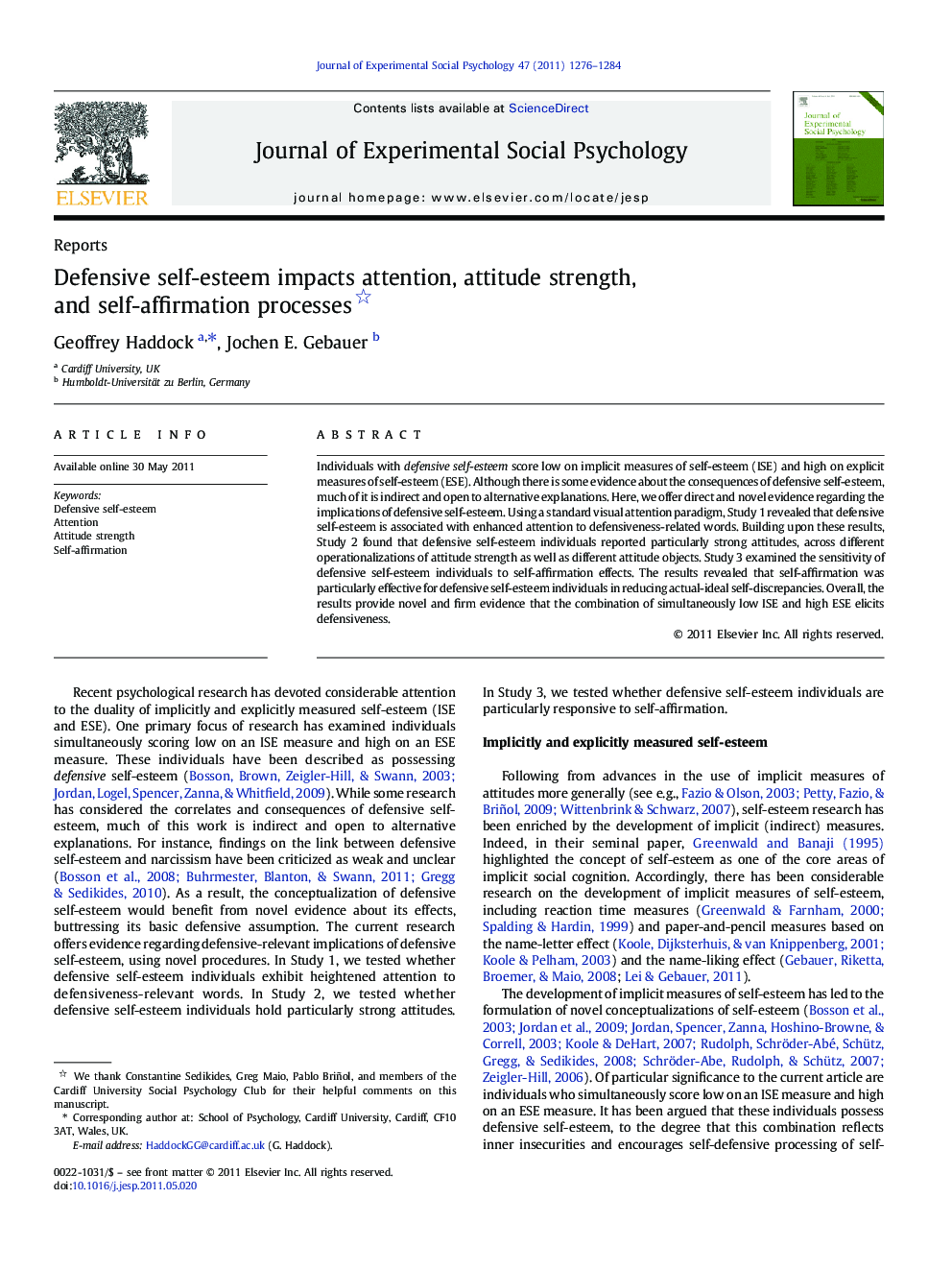| Article ID | Journal | Published Year | Pages | File Type |
|---|---|---|---|---|
| 947999 | Journal of Experimental Social Psychology | 2011 | 9 Pages |
Individuals with defensive self-esteem score low on implicit measures of self-esteem (ISE) and high on explicit measures of self-esteem (ESE). Although there is some evidence about the consequences of defensive self-esteem, much of it is indirect and open to alternative explanations. Here, we offer direct and novel evidence regarding the implications of defensive self-esteem. Using a standard visual attention paradigm, Study 1 revealed that defensive self-esteem is associated with enhanced attention to defensiveness-related words. Building upon these results, Study 2 found that defensive self-esteem individuals reported particularly strong attitudes, across different operationalizations of attitude strength as well as different attitude objects. Study 3 examined the sensitivity of defensive self-esteem individuals to self-affirmation effects. The results revealed that self-affirmation was particularly effective for defensive self-esteem individuals in reducing actual-ideal self-discrepancies. Overall, the results provide novel and firm evidence that the combination of simultaneously low ISE and high ESE elicits defensiveness.
Research Highlights► The paper provides direct and novel evidence regarding the implications of defensive self-esteem. ► Defensive self-esteem is associated with enhanced attention to defensiveness-related words (Study 1). ► Defensive self-esteem individuals reported particularly strong attitudes (Study 2). ► Self-affirmation was particularly effective for defensive self-esteem individuals in reducing actual-ideal self-discrepancies (Study 3).
